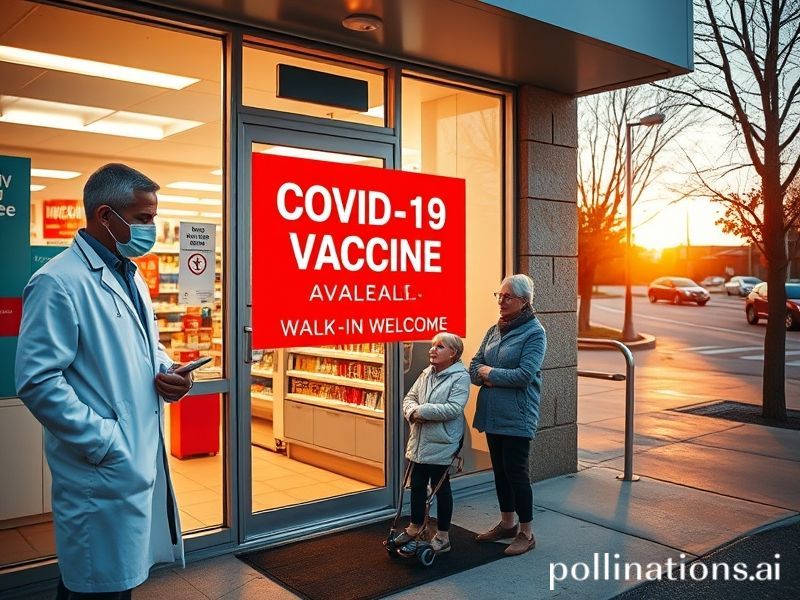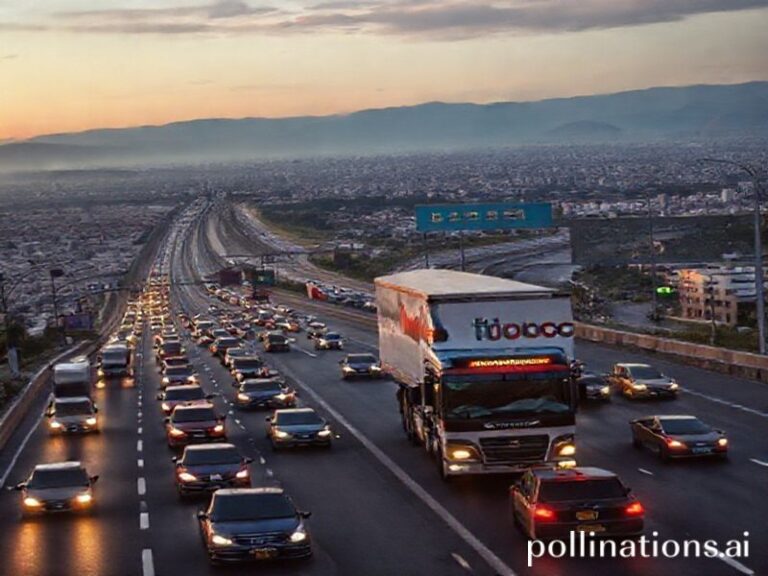Needles in a Haystack: The Global Hunt for ‘Vaccines Near Me’ and the Irony in Between
The phrase “vaccines near me” has become a tiny, pleading prayer muttered into glowing rectangles everywhere from Lagos to Lisbon. It is typed in 47 languages, auto-corrected into oblivion, and translated by algorithms that still think “Sinovac” is a Chinese boy-band. Yet behind the banal search bar lies a planetary morality play: a scramble for 0.3 milliliters of hope in a syringe while the rest of the world argues about patents, passports, and whether Bill Gates is micro-chipping our Chardonnay.
Start in Norway, where surplus doses pile up like IKEA furniture nobody bothered to assemble. The Norwegian Institute of Public Health recently confessed it would have to discard 137,000 expiring Pfizer vials—roughly one dose for every three citizens of Sierra Leone, which still hasn’t hit 10 % coverage. Norwegians, meanwhile, fret about whether the booster will interfere with their ski holiday. If schadenfreude were a vaccine, it would be 100 % effective.
Pan south to South Africa, where the phrase “near me” has a flexible definition. The nearest site may be 200 km away, reachable by two minibus taxis, a donkey cart, and a prayer that the power stays on long enough to keep the fridge cold. Here, Moderna finally granted a Cape Town fill-and-finish license—after 18 months of polite stonewalling, and only because the U.S. feared losing moral high ground to China’s no-strings Sinovac diplomacy. Nothing accelerates global equity like a good old-fashioned superpower squabble.
In India, the tech-savvy have repurposed CoWIN bots that once scalped movie tickets to now scalp vaccination appointments. A Mumbai developer bragged to me that his script books slots faster than a Delhi auntie haggling for mangoes. The government calls it “innovation”; ethicists call it “queue-jumping”; the Supreme Court calls it “Tuesday.” Whatever the label, it works—so long as you have a smartphone, a data plan, and the caste privilege that usually accompanies both.
Zoom over to Brazil, where President Bolsonaro—after eighteen months of calling the virus “a little flu”—suddenly discovered the magic of vaccines, conveniently timed with the Senate threatening impeachment. Brazilian Twitter responded with memes of the president dressed as a syringe, a visual so cursed it could have been produced by the Gates microchip itself. Uptake spiked anyway; nothing motivates quite like political terror.
And then there is the United Kingdom, where the National Health Service text reads, “Book your booster near you.” The link directs to a gleaming clinic inside a converted Selfridges, between the Jo Malone counter and a vegan sushi bar. Inside, a nurse in a Burberry mask jabs an octogenarian who complains the cotton swab isn’t Fortnum & Mason. Outside, refugees housed in a nearby hotel are told to wait for “GP registration,” a process scheduled sometime after the heat death of the universe.
Zoom out further and “near me” collapses into cosmic absurdity. The International Space Station crew got their Pfizer doses via a SpaceX Dragon capsule, making them the only humans whose booster required literal rocket scientists to deliver. Somewhere in low-Earth orbit, an astronaut contemplates the irony that his immune system is now more cosmopolitan than most passports.
All of this would be hilarious if it weren’t lethal. The virus doesn’t respect latitudes or algorithms; it simply exploits the gaps between them. Every discarded Norwegian vial, every hacked Indian script, every Brazilian meme is a data point in a morbid ledger of human ingenuity and indifference. We have built a world where a teenager in Toronto can summon a booster via drone before a grandmother in Kampala can summon clean water. That isn’t just inequality—it’s satire written in epidemiological ink.
Still, the search continues. Somewhere tonight, a pharmacist in rural Romania unlocks a freezer at 3 a.m., praying the power stayed on. A nurse in Gaza administers the last ten doses as shelling echoes in the distance. And in a basement in Berlin, an anti-vaxxer livestreams about nanobots while Googling “vaccines near me” just in case the conspiracy doesn’t pan out.
The needle is tiny; the symbolism, massive. It turns out the distance between “near me” and “nowhere near” is measured not in kilometers but in politics, patents, and the fragile illusion that we’re all in this together. Until that gap closes, the most contagious virus remains the one that convinces us someone else’s immunity is none of our business.







